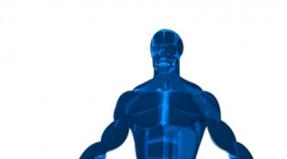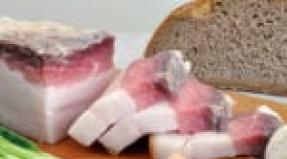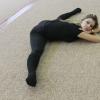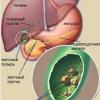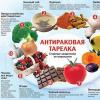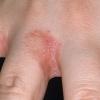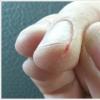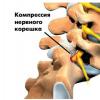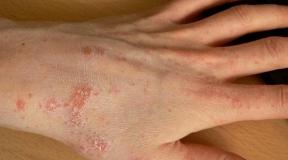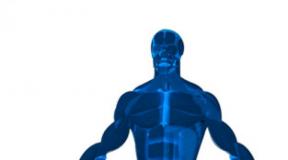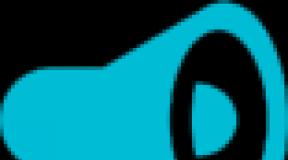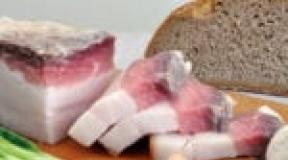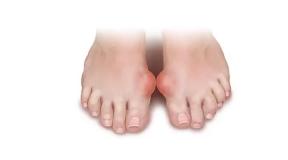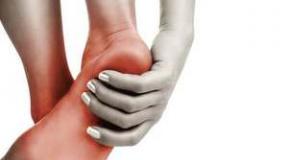Einstein was not a loser in school, this is a myth. "don't believe that einstein did not study well at school" Einstein was a C student at school
We expose! Einstein was a loser? July 22nd, 2013
Many Losers console themselves with the thought that Albert Einstein - the great physicist, author of the famous theory of relativity, Nobel laureate - was also a Losers in childhood.
But is it true?
Facts speak better than any words. So, before you is Albert Einstein's matriculation certificate, which he received at the cantonal school of Aarau (Switzerland) in September 1896 at the age of 17 (grades were given according to a six-point system).
Translation:
German - 5
French - 3
English language - -
Italian language - 5
History - 6
Geography - 4
Algebra - 6
Geometry (planimetry, trigonometry, solid geometry and analytical geometry) - 6
Descriptive geometry - 6
Physics - 6
Chemistry - 5
Natural history - 5
Artistic drawing - 4
Technical drawing - 4
As you can see, Einstein shone in the exact sciences, and in other subjects he had decent grades. He received the highest score in history, algebra, trigonometry, geometry and physics. In other subjects, the estimates are a bit more modest. The lowest score - 3 - was received by him in French. However, during a visit to Jerusalem in 1923, he free gave a lecture in French. Einstein was not certified only in English, and this circumstance made his life very difficult when he moved to the United States in 1933.
Where, then, did the myth of the poor performance of a genius come from?
The thing is that Einstein studied most of the time in Germany, but received a school certificate in Switzerland, where the grading system was the opposite of German: in Germany, the highest score was one, just below two, and so on, and Swiss teachers used a direct six-point system.
At school (the Luitpold Gymnasium in Munich), Albert Einstein was indeed not one of the first students (although he never had problems with mathematics, Latin and physics). The reason for this was the freethinking of the future Nobel laureate. He did not tolerate the authoritarian attitude of teachers towards students, the atmosphere in the gymnasium, close to the military. “The teachers of the junior classes act like sergeants, and the teachers of the senior classes act like lieutenants,” Einstein later recalled. “I despise those who gladly march in formation to a music lesson - the brain was given to them by mistake. The spinal cord would have been enough! he wrote. The student did not hide his dislike of the teachers, and it was mutual. One day one of the teachers confessed to him: "It will be great when you finally leave the gymnasium." To Einstein's objection that he did nothing wrong, he explained: "Your presence and indifferent attitude to everything we teach in the classroom undermines the reputation of the whole school."
In addition, in the sixth grade of the gymnasium, Albert began to have serious problems with some of the teachers due to the fact that he “constantly demanded evidence of religion and chose free thought.” Such skepticism was very rare in those days and not encouraged, especially in an educational institution of this type.
Passport
Thus, Einstein was a "bad" student only in the sense of behavior in a paramilitary school system, which was reduced to rote learning ("I was ready to endure any punishment, so as not to memorize incoherent nonsense"). But this is just one more proof of the extraordinary personality of the future Nobel laureate. Meanwhile, he did a lot of work on his own, was fond of reading. Of childhood impressions, Einstein later recalled as the most powerful: Euclid's Elements and I. Kant's Critique of Pure Reason. In addition, at the initiative of his mother, he began playing the violin at the age of six. Einstein's passion for music continued throughout his life. Already in the United States in Princeton, in 1934 Einstein gave a charity concert in favor of scientists and cultural figures who had emigrated from Nazi Germany, where he performed works by Mozart on the violin.
The mistake of one of the early biographers of the genius, who confused the Swiss system of knowledge assessment with the German one, also played a significant role in creating the myth of Einstein-deployer.
Thus, dear losers, you should not justify your laziness and lack of diligence with stories that the study was bad for the author of the most incomprehensible theory in the world - this is pure fiction. To get closer to Einstein, first try to reach one “five” in mathematics or understand something in the writings of Immanuel Kant.
By the way…
Here one more myth from the same series should be dispelled: that Einstein failed the final exam, and passed it only the second time. To do this, we will tell you more about the history of obtaining a certificate, a copy of which is given on this page.
In fact, Einstein left the gymnasium without having received a certificate, for the reasons disclosed above.
The young man's father insisted that he put all this "philosophical nonsense" out of his head and think about how to get a sensible profession; he was leaning towards engineering, since his son was so fond of mathematics and physics. Father's advice had to be followed. At the family council, it was decided to send Albert to a technical educational institution. Moreover, it was necessary to choose one where teaching was conducted in his native German language. Germany was excluded - Albert intended to renounce German citizenship so as not to serve in the army, where he was called up at the age of 17. Outside of Germany, the Zurich Polytechnic Institute (Polytechnic) was the most famous, and Einstein went there in the fall of 1895, although he was 2 years short of the required 18 to enter.
According to his own recollections, he did not like the specialty that his parents chose for him to such an extent that he practically did not prepare in those subjects that did not interest him - botany, zoology, foreign languages. Accordingly, he passed them almost worse than all the applicants, although he distinguished himself in the exams in mathematics and physics. The absence of a gymnasium certificate also played a role: it was not accepted. However, the director of the institute, amazed by the young man's mathematical erudition, gave him good advice: to finish one of the Swiss secondary schools to obtain a certificate and a year later make another attempt to enter the institute. He recommended the cantonal school in the small town of Aarau as the most advanced in both teaching methods and teaching staff. Albert did just that, and in September of the following year he successfully passed all the final exams, and already in October 1896 he was admitted to the Polytechnic at the Faculty of Education without exams.
Well, and “by the way”, the physicist received the Nobel Prize by no means for the theory of relativity, as many believe, but for the development of the quantum theory of the photoelectric effect.
Well, I will refrain from one more exposure or clarification.
If you have never seen this photo, then this is at least strange. But few people know how the famous photo appeared. And it all happened on March 14, 1951, when Albert Einstein celebrated his 72nd birthday. He left Princeton University with Dr. Eidelot and his wife. The three of them got into the car after celebrating the birthday of the genius of physics at the university. All the time they were annoyed by photographers and reporters. But one of them stood aside, waiting for the main crowd of journalists to disperse. After waiting, Arthur Sas approached those sitting in the car and asked the professor to smile for a birthday photo.
In response, Einstein - SHOWED THE LANGUAGE!
Here's what the full version of the famous photo looks like. This frame has become a legendary symbol of the originality of a man of genius.
In the editorial office where Artur Szas worked, they could not decide for a long time whether to publish such an unusual frame and the frame was nevertheless published. Seeing himself sticking out his tongue on the front page of a newspaper, Albert Einstein fell in love with the picture. He immediately cut out the photo to the usual size for us and made copies that he sent as a postcard to his friends. A year before his death, he wrote to one of his friends that
Many negligent students justify their grades with the following argument: some geniuses, for example, studied at school very badly.
This is not true: yes, little Albert was not among the first students, but he certainly was not a loser either. The thing is that Einstein studied most of the time in Germany, but received a school certificate in Switzerland, where the grading system was the opposite of German: in Germany, the highest score was one, just below two, and so on, and Swiss teachers used a direct six-point system.
At school, Einstein excelled especially in mathematics and science, devoting less time to French, geography and drawing - these subjects did not interest him much, but his average score was about five points out of six (according to the Swiss system).
By the way, the physicist received the Nobel Prize not for the theory of relativity, as many believe, but for the development of the quantum theory of the photoelectric effect.
7 Useful Lessons We've Learned From Apple

10 deadliest events in history Soviet "Setun" - the only computer in the world based on the ternary code 12 never-before-seen images from the world's best photographers 10 Greatest Changes of the Last Millennium Mole Man: Man spent 32 years digging the desert 10 Attempts to Explain the Existence of Life Without Darwin's Theory of Evolution Unattractive Tutankhamen Pele was so good at football that he paused the war in Nigeria with his game






However, “bad” in this case is a relative term. For a future genius - perhaps not enough. Pretty good for a normal kid. He was not considered the best student, one might even say that he was a three-year-old, but his only mark of "3" was in French. And, of course, he did not experience problems with mathematics and physics, having the highest score on them: "6".
 True, there are some nuances. In 1895, Albert graduated from the Prussian gymnasium, and intended to live and continue his education in Switzerland. And here it turned out that the young man's gymnasium training, received in Prussia, was weak. Natural talent allowed him to pass the exact sciences perfectly, but he still failed in French and botany. Before trying again to enter, he studied for a year in the final class of one of the Swiss schools. Below is a copy of Albert Einstein's certificate, which he received at this particular school before his second - this time successful - attempt to enter the pedagogical faculty of the Zurich Polytechnic. Please note that the notorious trio in French is the result of the fact that in Switzerland this language is common on a par with German, therefore, the requirements for knowledge of French were much higher than in Prussia, where French was a foreign language.
True, there are some nuances. In 1895, Albert graduated from the Prussian gymnasium, and intended to live and continue his education in Switzerland. And here it turned out that the young man's gymnasium training, received in Prussia, was weak. Natural talent allowed him to pass the exact sciences perfectly, but he still failed in French and botany. Before trying again to enter, he studied for a year in the final class of one of the Swiss schools. Below is a copy of Albert Einstein's certificate, which he received at this particular school before his second - this time successful - attempt to enter the pedagogical faculty of the Zurich Polytechnic. Please note that the notorious trio in French is the result of the fact that in Switzerland this language is common on a par with German, therefore, the requirements for knowledge of French were much higher than in Prussia, where French was a foreign language.

It is also true that none of the teachers of the Zurich Polytechnic gave the young Einstein a recommendation for scientific activities. But that was later. And let's not forget that a personal recommendation is the result of not only successful studies, but also a special relationship. Surely, among Albert's classmates there were guys who knew how to get along with teachers better than he did. According to the robot, with the article "Don't believe that Einstein didn't do well in school" thematically related:
The German Wikipedia states that this myth is connected with the mistake of the first biographer of Einstein. Both Germany and Switzerland have adopted a six-point rating scale. But in Germany, the best score is 1, the worst - 6. And in Switzerland - on the contrary: the best - 6, the worst - 1. And so, they say, the biographer confused the marks in the Swiss certificate with the German ones.
True, this theory does not explain how Einstein - according to the biographer - was able to enter the Polytechnic Institute with "6" in all mathematical disciplines and physics, as well as "5" in chemistry and a number of other subjects.
Here is a hypothesis about the origin of the myth:
Das Gerücht, dass Einstein allgemein ein schlechter Schüler war, ist falsch: Es geht auf Einsteins ersten Biografen zurück, der das Benotungssystem der Schweiz mit dem deutschen verwechselte.
Objectively, Einstein was not a bad student.(in Russian - "double student" or "triple student"), just as he was not a "round excellent student" or even a "good student". As a child, he was very self-willed, he didn’t particularly want to study subjects that were not of interest to him (and, on the contrary, he studied subjects that were of interest; at the same time he lost his religiosity at the age of 12) - he received appropriate (but at least satisfactory) marks, was not afraid to express his opinion and argue with authorities (teachers, the director of the gymnasium or his own father: at least, on the issue of higher education, he went to the polytechnic, where he wanted to, and not where his father wanted to send).
Einstein did not finish the German gymnasium not because of poor progress (he did not have unsatisfactory grades) but because of a conflict with the director and teachers. They believed that Einstein behaved too badly and, moreover, negatively influenced others. In a word, he does not respect authorities and does not fit into the system. However, Einstein was not expelled, but simply left on his own. At the age of 15, by the way. Moreover, the parents already lived in another country (in Italy), and after a couple of years, they were threatened with being called up to serve in the Kaiser’s army (it was enough to live up to 17 years in Germany to turn into a military man), where Einstein did not want at all. By the way, he soon also refused German citizenship and for a number of years did not have any citizenship at all.
At the age of 16 - in Italy - he wrote the first scientific article("On the study of the state of the ether in a magnetic field"), which he sent to his uncle in Belgium for review. (And what scientific article did you write when you were 16? I, for example, did not.) The work was not sent to scientific journals and was not published.
Then the family moved to Switzerland and Einstein tried to get into the polytechnic. Since he did not have an education that gave him the right to enter a university (in Germany it is called Abitur, in Switzerland - Matura), he had to take entrance exams (by the way, if he remained in the gymnasium, he would still continue to study and would not enter any university at 16). Either he failed the exam in French (as the German Wikipedia claims), or also botany (as the Russian one claims), or - to the heap - also zoology (as stated in the previous answer). In any case, he passed everything else, although he did not finish his studies at the gymnasium, and, it seems, he did not take private lessons (except for learning to play the violin).
On the recommendation of one of the professors of the Polytechnic, Einstein accepted to study at a Swiss school, where he received his certificate about passing the exams for this very Matura (French - for 3, that is - in the five-point system - for a triple with a minus). Then entered the polytechnic, where he continued in his former spirit: he skipped lectures on subjects that did not interest him (he prepared for exams on the notes of fellow students). This time, it was mathematics that fell into disgrace, as being too theorized and far from the problems of physics. Subsequently, while working on general relativity, Einstein allegedly changed his mind on this matter and expressed regret about absenteeism from mathematical lectures during his studies at the polytechnic.
The German theoretical physicist Albert Einstein is often included in the lists of brilliant scientists who were losers at school. Unlike the problems of Thomas Edison, the failure of the future Nobel Prize winner in physics is a myth that continues to be replicated, despite the fact that in the mid-1980s he found a documentary refutation.
Albert Einstein's childhood passed in Munich, where his poor family moved a year after the birth of his son. Despite the fact that Einstein's parents were Jewish, at the age of five he was sent to a Catholic elementary school, since it was close to home. Albert hated the classical model of education from childhood: schoolchildren had to walk along the line, and for each wrong answer they were beaten with a ruler on their hands. In addition, anti-Semitic sentiments began to intensify in Germany, and peers often bullied the boy for his origins.
In 1888, 9-year-old Albert entered the Luitpold Gymnasium, which was famous for the level of teaching mathematics, natural sciences and ancient languages, and also had a modern laboratory.
The change of place of study did not change Einstein's feelings about the organization of the process itself: he hated cramming and hammering useless facts into the heads of schoolchildren, he hated teachers avoiding questions and the barracks discipline that they tried to instill in their students. Young Albert never kicked a ball or climbed trees with his peers, but he was happy to explain things they didn’t understand, for example, how a telephone works. For this, peers affectionately called Einstein a hack and a big bore.
Despite the complete rejection of the school as an institution, Albert always received high marks and was among the best students.
Academic records recovered from the archives in 1984 indicate that Einstein was a child prodigy who had mastered college-level physics by the age of 11, was an excellent violinist, and scored highly in all school subjects except French.
In his free time, Albert was engaged in science on his own. Parents bought textbooks for him in advance, and during the summer holidays the boy could go much ahead in mathematics. Albert's uncle Jacob Einstein, who, along with his father Hermann, ran an electrical equipment trading company, invented complex algebra problems for his nephew. Albert sat over them for hours and did not leave the house until he found a solution.
In addition to his uncle, the future physicist had another mentor, medical student Max Talmud, whom the Einsteins received at home on Thursdays. The Talmud brought books to Albert, among which was Aaron Bernstein's series of non-fiction essays, The Folk Books of Natural History. Bernstein often wrote about the speed of light, immersing readers in various exciting situations: for example, you are on a high-speed train whose window is hit by a bullet, or you are moving along a telegraph line along with an electrical signal.
Influenced by these essays, Einstein asked himself the question that occupied his thoughts for the next decade: what would a ray of light really look like if you could ride hand in hand with it? Even as a child, it seemed to him that a ray of light could not be a wave, because then it would be motionless, but no one has ever seen motionless light rays.
When Albert was 12 years old, the Talmud gave him a geometry textbook, which the boy read at one gulp and called his sacred little book on geometry. From mathematics, the student mentor moved on to philosophy and introduced Einstein to Immanuel Kant, who became the favorite philosopher of the future Nobel laureate.
Einstein could not stand stupid people, regardless of their age and position in the social hierarchy, and did not know how to hide his feelings, so he often had conflicts with teachers. The boy could be kicked out of class for sitting in the last row and grinning.
One of the teachers once said in their hearts that Einstein would never achieve anything.
Despite this, the student continued to make progress, which cannot be said about his father: in 1894, his company went bankrupt, and the Einsteins moved to Milan. Albert, on the other hand, was waiting for several years in a Munich hostel, since he needed to finish school. The teenager could not bear the sadness and loneliness that had fallen on him, and six months later he knocked on the door of his parents' house.
So, Einstein found himself in the position of a teenager who dropped out of school, who is hiding from the army in a foreign country (Albert would soon turn 17, in Germany, from this age, young people had to carry out military service). However, he did not have the skills that would allow him to get a job.
To get out of the situation, Einstein applied to the ETH Zurich, since they were allowed to take the entrance exams without the equivalent of a secondary education diploma.
Albert received the highest marks in physics and mathematics, but in general he failed the exam
Impressed by the boy's abilities, the director of the polytechnic advised him to get a high school diploma and try again. In early 1896, three months before his 17th birthday, Einstein renounced his German citizenship and was stateless for several years until he received a Swiss passport. In the same year he graduated from the cantonal school of Aarau in Switzerland. His academic performance has not undergone fundamental changes: the highest marks in physics and mathematics, a triple in French (on a six-point scale), fours in geography and drawing.
Probably, it was the academic notes from the Swiss school that misled Einstein's biographers when they mistook him for a loser. The fact is that in the last trimester of Albert's education, the school administration turned the rating scale upside down and "6" became the highest mark. In previous trimesters in mathematics and physics, Einstein had a "1" because the scale was reversed.
The physicist until the end of his life remained a critic of the German education system, which, in his opinion, brainwashed schoolchildren.
Read also...
- Why does osteochondrosis occur and how is it treated?
- What to do if a foreign body gets into the nose of a child?
- Can cystic mastopathy go away on its own? Can mastopathy go away without treatment?
- Scabies sick leave. Scabies. New conversations about an old ailment How long does itching last after scabies treatment
